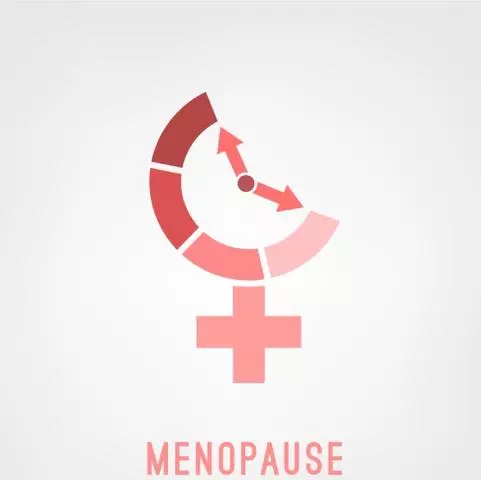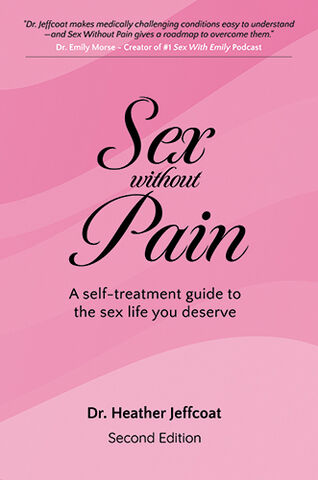What are the Links Between Menopause and Pelvic Health?
Menopause is a period of life transition for many of us. Today we will review what menopause is and how symptoms can negatively affect pelvic health, including bowel, bladder and sexual function.
What Happens During Menopause?
Menopause is an important life transition for those with female anatomy, marking the end of the regular menstrual cycle and the transition to life beyond the reproductive period.
Babies born with female anatomy have a set number of eggs which are stored in their ovaries. The ovaries make the hormones estrogen and progesterone, which control monthly periods and ovulation. Menopause happens when ovaries no longer regularly release an egg every month and menstruation stops.
The age menopause starts can vary, but usually it is after the age of 40. Some people can go through menopause early, usually after a hysterectomy, damage to the ovaries, and sometimes from chemotherapy.
=Menopause Symptoms Can Affect Quality of Life
More than 80% of those with menopause report physical and psychological changes the period before, during and after the last menstrual cycle.
In Minkin et al.’s 2015 study of over 8,200 people going through menopausal found that up to 77% of respondents experienced changes in their genitals (vulva, vagina, pelvic floor) that affected their lifestyle, emotional well-being, and sexual function.
Common Menopause symptoms that affect the genitals:
- Vaginal dryness
- Pain with sex
- Loss of elasticity and thinning of tissues, including genitalia, urethra, etc.
- Loss of muscle mass, including the pelvic floor muscles
- Vaginal soreness
- Vaginal itching
- Vaginal burning
- Pain during urination
- Bleeding during intercourse
Other common symptoms that affect quality of life:
- Hot flashes
- Night sweats
- Disrupted sleep
- Weight gain
- Mood Swings
- Joint pain
- Headaches
Layered on top of the changes that happen with menopause are other underlying issues that existed before the onset of menopause like pelvic floor dysfunction, orthopedic dysfunction, vulvodynia, pelvic organ prolapse, urinary incontinence, and bowel issues including chronic constipation and IBS. An existing pelvic floor issue with some menopause sprinkled on top can contribute to aggravated symptoms and reduced quality of life.
Common Menopausal Pelvic Health Issues and How Pelvic Floor Therapy can Help
Urinary Incontinence
Losing urine when with coughing, sneezing, and laughing is known as stress urinary incontinence. It is common to hear stories about this, as well as “overactive bladders” and “nervous bladders” which lose urine on the way to the bathroom and with strong urge.
Between 12.8 to 46% of women deal with urinary incontinence during their lifetime, with an increase during and after menopause. This is due to: a reduction of elasticity in the genital tissues, thinning in the tissues lining the urethra (the tube that empties urine from the bladder, and reduced muscular strength in the pelvic floor, the group of muscles that supports your pelvis and keeps your “holes” closed.
How Pelvic Floor Therapy Can Help: Pelvic floor therapy can help you train your pelvic floor muscles, increasing the strength of the muscles. A pelvic floor therapist can will also correct muscle incoordination that can lead to leakage.
Bowel Issues
The research is inconclusive as to whether or not menopause directly causes or worsens constipation, diarrhea, and Irritable Bowl Syndrome (IBS). However it is clear that stress tension, and anxiety all affect bowel health and regularity.
How Pelvic Floor Therapy Can Help: A pelvic health therapist can help you with neuromuscular re-education, biofeedback, and self care techniques such as abdominal massage that can regulate the GI system and promote regularity.
Pelvic Pain and Painful Sex
According to Minkin et al. 77% of women with menopause report vaginal dryness, and about 40% report pain with sexual intercourse and touch to the genitals.
When sex is painful, this can trigger anxiety about sex. This anxiety then triggers a new cycle of sexual problems: muscle guarding, decreased lubrication, and pelvic floor tension.
How Pelvic Floor Therapy Can Help: A pelvic floor therapist can help break the muscle tension cycle with manual therapy and teaching you self-treatment to maintain gains at home. By releasing pelvic floor tension, you free pelvic floor muscles, allowing for pain free sex. Pelvic floor therapists can also screen for musculoskeletal dysfunction in the spine, hips and pelvis; educate about sexual ergonomics and help you find positions that reduce pain during intercourse. Pelvic floor therapists can also provide you with self care programs which can reduce dryness and irritation in the tissues of the vulva, labia, and vaginal canal.
Give the therapists at Femina Physical Therapy a call today!
Resources
Callan, N. G. L., Mitchell, E. S., Heitkemper, M. M., & Woods, N. F. (2018). Constipation and diarrhea during the menopause transition and early postmenopause. Menopause, 25(6), 615–624. doi:10.1097/gme.0000000000001057
Castellani, D., Saldutto, P., Galica, V., Pace, G., Biferi, D., Paradiso Galatioto, G., & Vicentini, C. (2015). Low-Dose Intravaginal Estriol and Pelvic Floor Rehabilitation in Post-Menopausal Stress Urinary Incontinence. Urologia Internationalis, 95(4), 417–421. doi:10.1159/000381989
Maltais ML, Desroches J, Dionne IJ. Changes in muscle mass and strength after menopause. J Musculoskelet Neuronal Interact. 2009;9(4):186-97
Minkin, M. J., Reiter, S., & Maamari, R. (2015). Prevalence of postmenopausal symptoms in North America and Europe. Menopause, 22(11), 1231–1238. doi:10.1097/gme.0000000000000464
Mehta, R. S., & Staller, K. (2018). Menopausal transition and bowel disturbances. Menopause, 25(6), 589–590. doi:10.1097/gme.0000000000001110
**This information is for educational purposes only and is not intended to replace the advice of your doctor.













